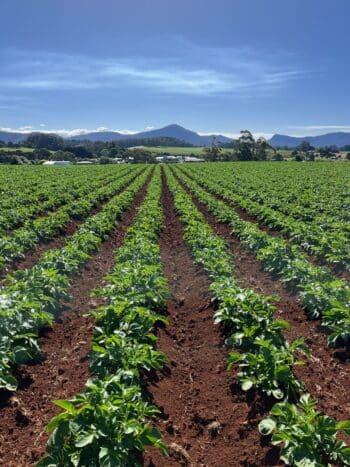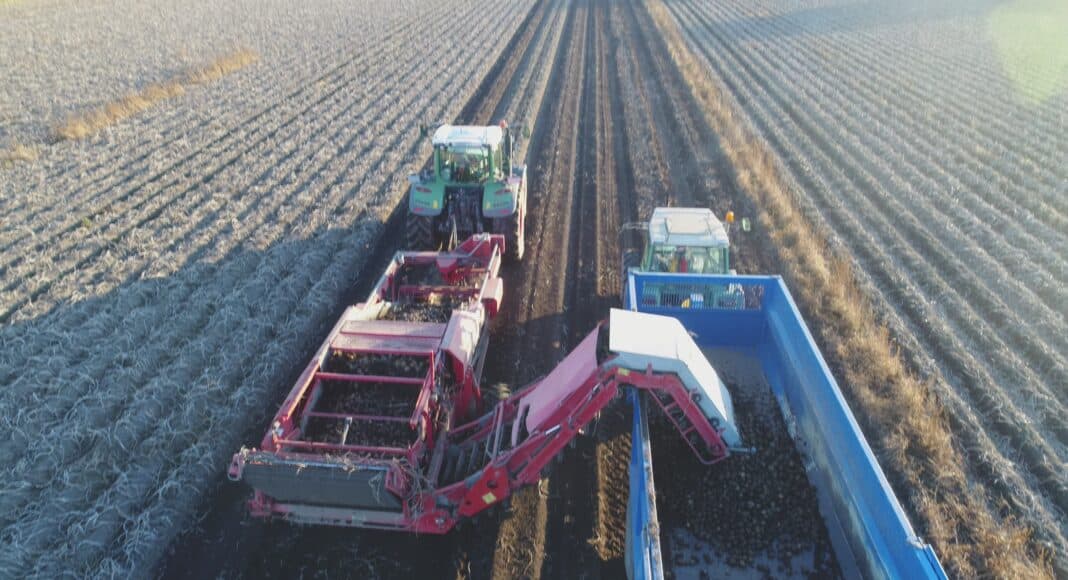When we think of Australia, there may not be an immediate association for North Americans concerning potatoes. However, to the Australians, their thriving Australian potato industry, with its distinctive growing regions, tells a different story.
The World Potato Congress, slated for June 23 to 26, 2024, in Adelaide, Australia, is set to host a global gathering of over 1,000 participants, offering an engaging agenda covering every aspect of the potato supply chain. Australia’s potato cultivation spans diverse markets, addressing the fresh table market, processing for french fry and crisping and the certified seed market. This highlights the adaptability of the Australian potato industry to meet varied consumer needs and industry demands.
South Australia, where the 12th World Potato Congress will be held, contributes 38 per cent of Australia’s total potato production, with a significant portion allocated to processing. Regionalization in production is evident, with Kangaroo Island focusing on seed production, the Adelaide Plains, Mallee and the Riverland regions specializing in fresh potatoes and the Southeast (Mount Gambier region) focusing on processing and certified seed potatoes.
Victoria has a rich history of potato production, including a large production of certified seed potatoes, processing, and crisping production. Tasmania, the island state, contributes 24 per cent of Australia’s potato production, mainly for the processing sector. Biosecurity policies restrict the entry of fresh potato tubers into Tasmania to mitigate pest and disease risks.

Western Australia, surrounded by seas and deserts, remains geographically isolated, shielding it from many significant pests and diseases affecting potatoes.
Australia’s considerable level of biosecurity, attributed to its remote geographic isolation and stringent quarantine protocols, contributes to the nation’s freedom from numerous biosecurity pests and diseases such as Colorado potato beetle and ring rot to name a few. Strict entry conditions into the country, including the restriction of importing only potato tissue culture material as planting material, emphasize the role of biosecurity measures in safeguarding the country’s agricultural and ecological environments.
Attendees of the World Potato Congress in will have the opportunity to explore various regions through organized tours, including a visit to Kangaroo Island. The island, known for its natural beauty with one-third reserved as conservation and national parks, has become a key player in producing high-quality, disease-free early-generation potato seed.
One post-Congress tour stop will feature a visit to Peter Cooper, a certified seed potato grower on Kangaroo Island, producing approximately 1,500 tons of seed potatoes annually, primarily for fresh market growers on the Adelaide Plains, the Mallee and the Riverland.
Back on the mainland, congress tours will guide delegates through Mitolo Farms, a major potato producer and packer, picturesque winery regions, and globally acclaimed research facilities at SARDI. The Congress and Trade Show at the Adelaide Convention Centre will embrace the theme ‘Old World Meets New,’ taking place in a venue recognized as the world’s first convention centre to achieve EarthCheck’s Master certification for sustainable practices.
In addition to the main events, extra activities include Partner Programming activities during the Congress, post-Congress field tours and interspersed opportunities to experience authentic Australian culture and hospitality.











